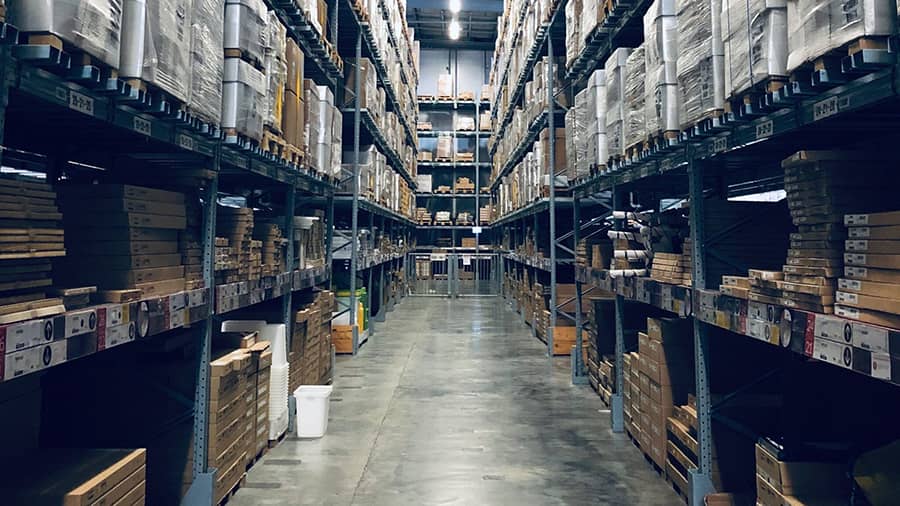Ensuring that your products are offered at a major retailer is no easy task. The hard work, diligent preparation, and lots of research will be worth it once the contract is in. But don't underestimate it, because once your product is on the shelves, there is still a lot of work to be done.

Retail chains want to see the products they take on sell as well as possible. If your products don't go out the door as expected, or don't meet pre-set expectations, the products may be taken off the shelves before they even get picked up by the public. If you offer a product through a chain store, try these tips to keep your contract:
Be proactive and take control of your contract
Too often, suppliers offer their products in stores only to discover that the products do not fit the store's customers. This can be disappointing and costly for both the retailer and the supplier. Take the time to get to know the retailer's business. Each retailer has a different marketing approach and a different type of customer. So it's important to understand how your product fits within the store's brand.
Some retailers have different programs, for example, programs for minorities or women, or programs featuring local products. Checking with the retailer and the company's values can help you introduce your product through such programs. This leads to long-term contracts and better placement in stores. Whether or not the retailer offers this information (for free) can be a major determining factor in pursuing a contract with the retailer in question.
Perhaps a supplier's biggest mistake is to settle into a comfort position too quickly
One of the most important parts of doing research is staying proactive. Perhaps a vendor's biggest mistake is to settle into a comfort position too quickly. As much as possible, stay one step ahead of trends. That way you can plan much better in advance and stay ahead of your competitors.
It's not the retailer's job to sell your products
Some suppliers think that it is the store's job to sell their products once they are on the shelves. That may be the case with specialized small stores, but it doesn't necessarily work that way with large stores. Suppliers not only have to get the products into the stores. They are also responsible for the proper sale of those products. Therefore, it is important to develop a marketing plan in time.
Design packaging that transparently states what the product is right and fits into the sales strategy. Some stores do not offer training to their staff or are not equipped to educate customers about your product. Therefore, make sure that your product can sell itself.
Credit scores and ratings can be of strategic importance
If you deal with several retailers, it can be important to have a healthy credit score. Most representatives who approve contracts want to make sure they are pairing the store with credible vendors. You need to be able to demonstrate to them that you have what it takes to succeed. Some suppliers will only do business with a company that has a "Dun & Bradstreet Supplier Evaluation Risk" score of 6 or lower. Some monitor their suppliers' scores continuously during the term of a contract. Therefore, make sure that your credit rating and reviews reflect your company's credibility by monitoring and improving your scores.
Stay innovative
Many retailers are currently looking at alternative forms of selling (such as home delivery), in order to be at the forefront of the industry. So figure out what forward-thinking initiatives your retailer wants to implement in the future and figure out ways to adapt your products to those initiatives. For example, ensuring that the packaging of your products is delivery-proof could help your retailer make a smooth transition and ensure that your contract is renewed.
Consider your business partnerships as real relationships
If you want to take your professional relationship to the next level to increase the chances of retaining a contract, treat your retailer/supplier as a partner.
- Don't just communicate with buyers via email; a phone call is much more personal.
- Find out who the person is that you are connecting with and try to build a personal relationship with them.
- Meet with buyers or invite them to visit your business.
- Provide small gestures such as a birthday or Christmas card.
Let them know that your company cares about them; you'll be surprised at the degree to which that affects your working relationship.
Also consider supporting your retailers by working together for marketing, social media and PR. Showing your retailers that you are not just a supplier, but an important element of their business can mean a lot to them. Remember that a first order can be the step to a long-term, successful relationship.
It is up to you to keep the contract with major retail chains. If you put in enough effort and go for it, you significantly increase the chances of renewing your contract and establishing a mutually beneficial relationship.
